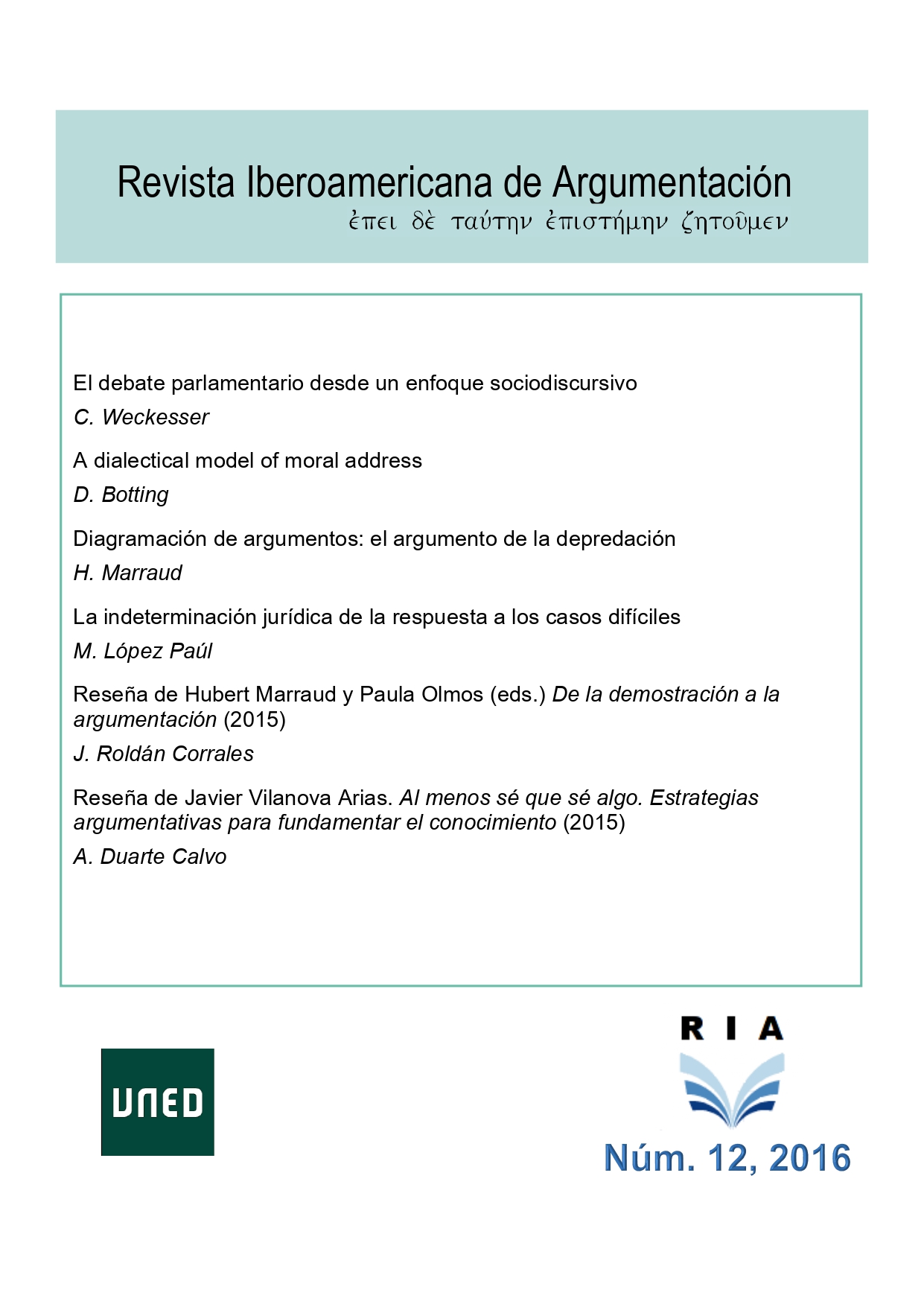Derechos de autor 2017 Revista Iberoamericana de Argumentación

Esta obra está bajo una licencia internacional Creative Commons Atribución-NoComercial-SinDerivadas 4.0.
Resumen
Para dar cuenta del fenómeno conocido como "neoconstitucionalismo" parece conveniente una nueva teorización del derecho: la superación del paradigma positivista en la versiónde H. Hart, y su sustitución por la concepción postpositivista de R. Dworkin. En el modelo de Hart, desempeña un papel clave la tesis la discrecionalidad judicial con que los tribunales resuelven los casos difíciles, lo que explica la imposibilidad del consenso sobre cuál sea la respuesta correcta a tales casos. Dworkin defiende que la falta de consenso no impide admitir que los casos difíciles tengan siempre una única respuesta correcta, determinada por el sistema jurídico. Intentaremos justificar que la tesis de la discrecionalidad de Hart no puede ser sustituida por la tesis de la única respuesta correcta de Dworkin, y sostendremos que aquella tesis, debidamente purificada, debe mantenerse en la nueva teorización del derecho.
Palabras clave: argumentación jurídica, casos difíciles, discrecionalidad, indeterminación, neoconstitucionalismo, positivismo.
